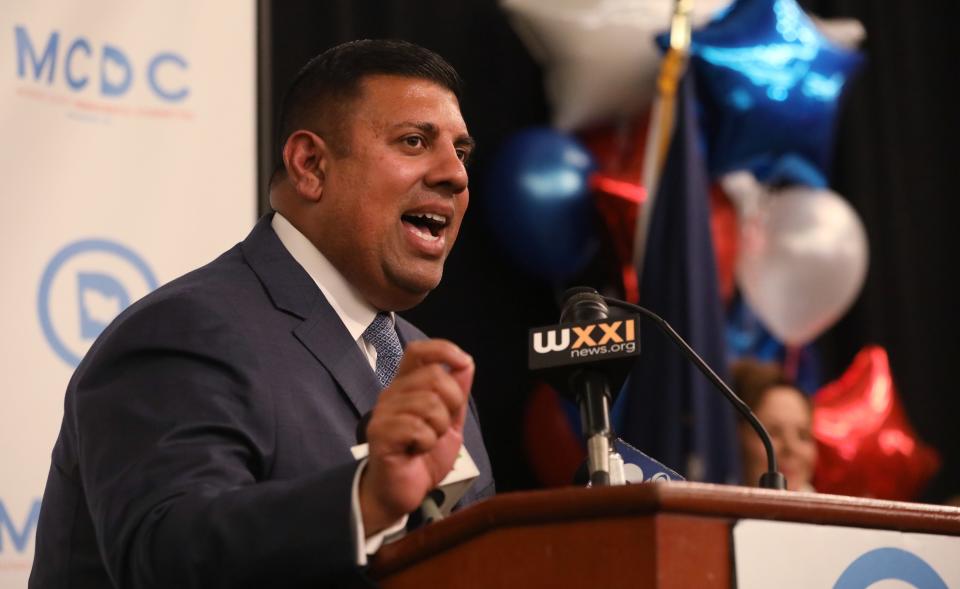Medical cannabis is unaffordable in NY: Here’s how we can change that | Opinion
Almost a decade has passed since New York began regulating cannabis for medical use — more than enough time to build a robust statewide program that ensures patients can get the products they need to ease their pain and improve their quality of life.
Instead, the medical program is dying on the vine, overlooked as state regulators focus instead on launching the adult-use recreational market. As a result, thousands of patients are struggling to access and afford their medications.
New York is better than this. A safe, well regulated, and equitable adult-use program doesn’t have to come at the expense of medical cannabis patients, who have suffered far too long under some of the nation’s most restrictive medical cannabis rules. Indeed, Pennsylvania’s medical cannabis program is two years younger than New York’s but has nearly four times the number of qualifying patients.
Albany can take a big step toward reviving the stagnant medical cannabis program and bringing some necessary savings to patients by passing my bill, S5365, which would eliminate the 7% state excise tax on medical cannabis products.
In New York, the sales of traditional pharmaceutical drugs and medicines are not taxable if the drug or medicine is intended for internal or external use in people to diagnose, cure, treat or prevent illness or disease. This includes both prescription and nonprescription drugs and medicines that are recognized by the United States Pharmacopeia, the Homeopathic Pharmacopeia of the United States, or the National Formulary.
Though medical cannabis is legal in 37 states, Washington, D.C., and a handful of U.S. territories, it remains illegal at the federal level and classified as a Schedule I controlled substance seen as having “no currently accepted medical use.” Most health insurance companies — public and private — won’t cover it. Patients must pay for their medication entirely out of pocket, disproportionately impacting low-income individuals in communities of color.
New York has one of the nation’s highest medical cannabis tax rates. All nearby states — including Connecticut, Massachusetts, New Jersey, Rhode Island and Vermont — charge no excise tax on medical cannabis products whatsoever.
Colorado, the country’s most mature cannabis market, removed its excise tax on medical cannabis products to great effect. Based on a 2020 economic analysis by the Colorado Department of Revenue’s Marijuana Enforcement Division, the prices for medical program are lower than the price for adult-use products in the state. Currently in the state, adult-use retail sales have a 15% excise tax and 15% sales tax while medical products only have a 2.9% sales tax and zero excise tax.
An often-overlooked aspect of New York's Marihuana Regulation and Taxation Act, which was signed into law in March 2021 and legalized cannabis for adult recreational use, is that it called for significantly expanding the medical program. Currently, there are just under 40 medical cannabis dispensaries statewide — one for roughly every 500,000 New Yorkers. The MRTA calls for doubling that number to 80, but state regulators haven’t yet authorized that change.
The city of Rochester is fortunate to have two medical cannabis dispensaries, but most other communities in New York have none. As a result of the state’s inaction, many patients must travel hours to obtain their medications. This inconvenience, coupled with the high cost of medical cannabis, the difficulty of obtaining a medical card, and frequent technical difficulties have caused participation in New York’s medical program to dwindle significantly. We now trail 27 other states when it comes to per capital medical cannabis program enrollment.
Patients are increasingly being pushed into the illicit cannabis market, where untested products have a high likelihood of containing dangerous contaminants. That puts all consumers at risk, but it is a particular threat to those who have existing underlying health conditions and/or compromised immune systems.
The medical cannabis program currently generates $12.9 million in tax revenue. Comparatively, the state’s adult-use market, once it’s fully up and running, is projected to be worth an estimated $1.2 billion. We can more than afford to provide patients with financial relief through elimination of the excise tax; they’ve waited and suffered long enough.
State Sen. Jeremy A. Cooney, a Democrat, represents the 56th Senate District, which encompasses Monroe County and includes the Towns of Brighton, Gates, Greece, Henrietta, and parts of the city of Rochester.

This article originally appeared on Rochester Democrat and Chronicle: NY medical marijuana excise tax must be eliminated

